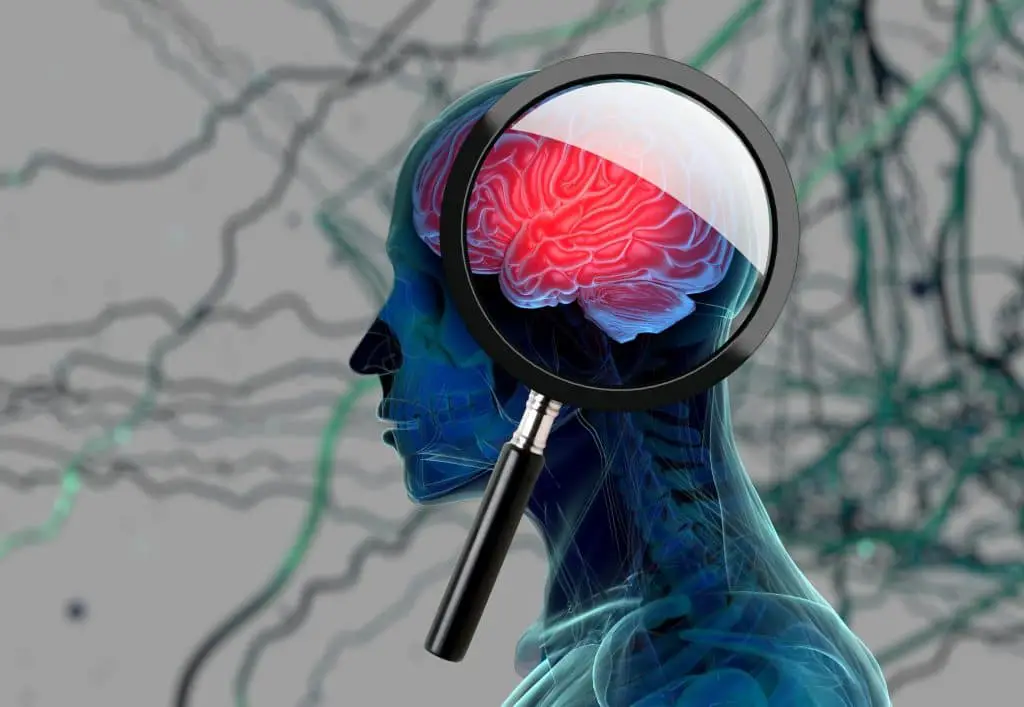A new study led by the University of Oxford reveals that sildenafil, commonly known as Viagra, improves blood flow to the brain and improves the function of cerebral blood vessels in patients at high risk of dementia vascular.
Is it possible to prevent vascular dementia?
This study, published on Circulation Researchmarks a potentially critical step in the fight against this debilitating condition.
Dr Alastair Webb, associate professor at the Wolfson Center for Stroke and Dementia Prevention at the University of Oxford, said: “This is the first study to show that sildenafil enters the blood vessels of the brain in people with this condition, improving blood flow.” and how reactive these blood vessels are.
“These two key factors are associated with chronic damage to the small blood vessels of the brain, which is the most common cause of vascular dementia. This demonstrates the potential of this well-tolerated and widely available drug to prevent dementia, which needs to be tested in larger trials.”
The importance of this research lies in its potential to transform the treatment and prevention of vascular dementia, which currently lacks specific therapies.
Chronic damage to the brain’s small blood vessels is not only the leading cause of vascular dementia, but also contributes to 30% of strokes and 80% of brain hemorrhages. High blood pressure, reduced blood flow to the brain, and impaired blood vessel function aggravate these conditions, making the findings of this study particularly crucial.

The OxHARP study was a meticulously designed double-blind, placebo-controlled study involving 75 participants who had had a minor stroke and showed signs of mild to moderate small vessel disease. Each participant received sildenafil, a placebo and cilostazol (a similar drug) for three-week periods in a randomized order. The study used cardiovascular physiology tests, ultrasound and functional MRI scans to evaluate the effects of the drugs.
Key findings include:
•Sildenafil increased blood flow in both large and small brain vessels, as measured by ultrasound and MRI scans.
•Sildenafil enhanced the blood flow response to carbon dioxide, indicating improved cerebrovascular function.
•Both sildenafil and cilostazol reduced the resistance of blood vessels in the brain.
•Sildenafil caused fewer side effects than cilostazol, particularly with a lower incidence of diarrhea.
Looking ahead, next steps include larger-scale studies to confirm these findings and explore sildenafil’s potential in preventing vascular dementia on a larger scale.
Professor Peter Rothwell, founding director of the Wolfson Center for Stroke and Dementia Prevention, said: “Professor Webb’s findings are very encouraging and highlight the potential to prevent vascular dementia using existing drugs that target the reduction of flow in the small blood vessels in the brain.”
What is vascular dementia?
Vascular dementia is a general term that describes problems with reasoning, planning, judgment, memory, and other mental processes caused by brain damage due to impaired blood flow to the brain.
There is no specific test that can confirm vascular dementia. Instead, health care providers make a judgment based on any medical history of stroke or heart and blood vessel disorders and test results that may clarify the diagnosis.
Symptoms of vascular dementia vary depending on the part of the brain where blood flow is impaired. Symptoms often overlap with those of other types of dementia, particularly Alzheimer’s disease. But unlike Alzheimer’s disease, the most significant symptoms of vascular dementia tend to involve speed of thinking and problem solving rather than memory loss.

Signs and symptoms of vascular dementia include:
•Confusion
•Difficulty paying attention and concentrating
•Reduced ability to organize thoughts or actions
•Decline in the ability to analyze a situation, develop an effective plan, and communicate it to others
Slowed thinking
•Difficulties with organization
•Difficulty deciding what to do next
•Problems with memory
•Restlessness and agitation
•Unstable gait
•Sudden or frequent need to urinate or inability to control passing urine
•Depression or apathy
Vascular dementia results from conditions that damage the brain’s blood vessels, reducing their ability to supply the brain with the amount of nutrition and oxygen it needs to carry out mental processes effectively.
Common conditions that can lead to vascular dementia include:
Stroke that blocks a brain artery: Strokes that block a brain artery usually cause a variety of symptoms that may include vascular dementia. But some strokes cause no noticeable symptoms. These silent strokes still increase the risk of dementia. In both silent and apparent strokes, the risk of vascular dementia increases with the number of strokes that occur over time. A type of vascular dementia that involves many strokes is called multi-infarct dementia.
Cerebral hemorrhage: This condition is often caused by high blood pressure weakening a blood vessel, leading to bleeding in the brain and causing damage. Another cause may be the buildup of proteins in small blood vessels that occurs with aging and weakens them over time.
Narrowed or chronically damaged brain blood vessels: Conditions that narrow or inflict long-term damage to brain blood vessels can also lead to vascular dementia. These conditions include wear and tear associated with aging, hypertension, diabetes, and abnormal aging of blood vessels.

In general, the risk factors for vascular dementia are the same as those for heart disease and stroke.
Risk factors for vascular dementia include:
Increasing age: The risk of vascular dementia increases with advancing age. The disorder is rare before age 65, and the risk increases substantially around age 90.
History of heart attack, stroke, or transient ischemia: If you have had a heart attack, you may be at increased risk of having blood vessel problems in the brain. Brain damage that occurs with a stroke or an episode of transient ischemia can increase the risk of developing dementia.
Abnormal aging of blood vessels or atherosclerosis: This condition occurs when deposits of cholesterol and other substances build up in the arteries and narrow the blood vessels. Atherosclerosis can increase the risk of vascular dementia by reducing the flow of blood that nourishes the brain.
High cholesterol: High levels of low-density lipoprotein, or LDL, or “bad” cholesterol, are associated with an increased risk of vascular dementia.
High blood pressure: High blood pressure places additional stress on blood vessels throughout the body, including the brain. This increases the risk of vascular problems in the brain.
Diabetes: High glucose levels due to diabetes can damage blood vessels throughout the body. Damage to brain blood vessels can increase the risk of stroke and vascular dementia.
Smoking: Smoking directly damages blood vessels, increasing the risk of atherosclerosis and other circulatory diseases, including vascular dementia.

Obesity: Overweight is a known risk factor for vascular disease in general and therefore presumably increases the risk of vascular dementia.
Atrial fibrillation: In this abnormal heart rhythm, the upper chambers of the heart begin to beat rapidly and irregularly, in coordination with the lower chambers of the heart. Atrial fibrillation increases the risk of stroke because it causes blood clots to form in the heart that can break down and travel to the blood vessels in the brain.
Treatment often focuses on managing the health conditions and risk factors that contribute to vascular dementia. Controlling conditions that affect the underlying health of the heart and blood vessels can slow the rate at which vascular dementia worsens and prevent further decline.
Depending on your individual situation, your doctor may prescribe medications for:
•Lowers blood pressure.
Reduce your cholesterol level.
•Prevent blood clotting and keep arteries clean.
•Helps control blood sugar level if you have diabetes.
The health of the brain’s blood vessels is closely linked to the overall health of the heart. Taking these steps to keep your heart healthy can also reduce your risk of vascular dementia:
•Maintain healthy blood pressure.
•Prevent or control diabetes.
Stop smoking.
•Do regular exercise.
Keep your cholesterol under control.
#Vascular #dementia #Viagra #prevent